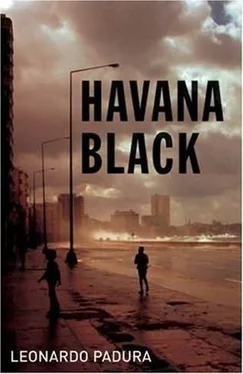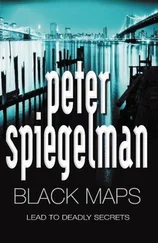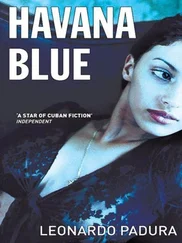“And thus the gold Buddha returned to the Treasury in the Captain General’s new building, while it awaited a favourable opportunity to resume its interrupted journey to Spain. And in August 1870 it was put on board the sailing ship Las Mercedes , and surrendered to the tender care of the boat’s trustworthy captain, one Nathaniel Chavarría, a Basque what’s more, and a retired officer of the Royal Navy, where he’d enjoyed an excellent service record and was valued as one with an expert knowledge of transatlantic shipping.
“On 23 August, in the teeth of several weather forecasts warning of the approach of a hurricane like the one on its way now, Captain Chavarría raised anchor after deciding that if a storm threatened he should seek shelter in the bay of Matanzas, where he would anyway have to put in for two days. Las Mercedes set sail in the morning and that same night, when it reached Matanzas, the storm seemed to be lying in wait for her in the mouth of the bay, and despite the Basque’s acknowledged seafaring experience, the sailing ship foundered on one of the rocks in the entry to the port. Three new mysteries were then added to the history of the gold Buddha: firstly, why did Chavarría decide not to wait for two or three days, until the cyclone passed, before sailing to Matanzas?; secondly, the divers employed to search the ship’s sunken remains in the very shallow area close to the coast never found the famous Buddha that weighed thirty-one pounds; and thirdly, in the shipwreck disaster only two of those travelling in Las Mercedes disappeared: an Andalusian sailor called Alberto Guarino, a man with a long criminal record, and Captain Chavarría himself, and their bodies were never given up by the sea.
“And the Buddha disappeared once more, as if that were its cyclical destiny. Nobody heard anything about it for a long time, though in the course of the investigations I carried out over the years into the history of that Buddha I formed a very poor opinion of Captain Nathaniel Chavarría… Because it just happened that one day, when conversing about Basque genealogy with a Uruguayan botanist called Basterrechea, who came to Cuba some fifteen years ago, he told me of the existence of a town in Uruguay by the name of San José de Mayo, of rich cattle ranches where he had done soil analyses at the request of the owners, the Chavarría family, of Basque descent, naturally. On hearing that, I asked him to find out the origins of the family and he wrote to me soon after, relating how the present owner’s great-grandfather had come to Uruguay around 1880 with a substantial amount of money he quickly invested in land, to avoid losing it all on the night-time binges in which he used to indulge in the brothels of Montevideo and Buenos Aires, despite the fact that he was sixty. I suggested he find out if the family was aware of the existence of a gold Buddha from the T’ang dynasty and whether they knew where their great-grandfather’s fortune came from and what his line of work was before he emigrated to Uruguay. And the response was surprising and most revealing: they knew nothing of any Buddha or the source of Nathaniel Chavarría’s wealth, although they suspected he’d got it from an inheritance or his own commercial genius, because the old man was a poor second son who had been a military and then merchant sailor, only a few years before reaching that god-forsaken corner of South America, his pockets stuffed with gold and in the company of an Andalusian colleague who went by two names: Alberto Guarino, or Federico del Barrio.
“Chavarría’s ruse was thus exposed and anyone not possessing the information I managed to put together could imagine two alternatives: either the Basque had sold the Buddha somewhere in Europe or America, or he’d melted it down, a much safer option for him, and had sold the thirty-one pounds of pure gold and disappeared to a remote town in Uruguay… But the second possibility never made any sense, because thirty years after the Matanzas shipwreck the Buddha was known still to exist, as smiling and healthy as ever, and had even returned to the hands of Don Antonio Riva de la Nuez…
“Because after Cuban independence, in 1902, when Spanish law ceased to be in effect on the island, a man called Manuel Riva Fernández, son of the Don Antonio who had lost and clearly recovered the gold Buddha, which he must surely have bought for a very goodly sum from Basque Captain Chavarría or his sidekick by the name of Guarino, showed the family relic to some friends and even allowed the press to photograph it. At the time there was talk of the statue costing more than two million dollars, because of its undoubted artistic value, since it was authenticated as a T’ang sculpture that had survived the disastrous banning of Buddhism in the ninth century, and was obviously one of the most extraordinary treasures from that time about which any information existed. And if any doubts remained as to its real origins, they could be forgotten after Manuel Riva was invited to an exhibition in Paris to exhibit his piece by the side of other treasures of ancient Chinese art. And Paris swooned at the feet of that magnificent Buddha, which was remarkable in so many ways.
“Manuel’s daughter, Zenaida Riva y Ponce de León, inherited the Buddha upon the death of her father, in 1936. Zenaida, who had married the Cuban banker Alcides Guevara, one of the richest men in Cuba, took the Buddha to their Miramar home, and placed it in a security-locked, unbreakable glass cabinet, specially built in London for the Guevaras. I know of several people who saw the sculpture there and it was undoubtedly the family’s pride and joy, which they could indulge the luxury of exhibiting and not selling, for if there was something the Guevara-Riva y Ponce de Leóns had to excess it was money… but that was of no use when in 1951 thieves deactivated the alarms, broke the security lock and removed the item from the house in Miramar. It is very easy to trawl this part of the story, because the press at the time printed reams on the case, photos of the Buddha were circulated, and a famous detective was even commissioned to investigate the theft, apparently a semi-specialist in such chinoiserie , one Júglar Ares. Neither the police nor the detective could track down the Buddha or its thieves, and people began to forget the case, particularly after the events that started to unfold from 1952: Batista’s coup d’état, Fidel and his group’s assault on the Moncada barracks, the arrival of Granma in Oriente province, the uprising in Santiago de Cuba, the failed regicide of 13 March, the war in the Sierra Maestra and the victory of the Revolution, which by the way did not take Alcides Guevara and Zenaida Riva by surprise, for in September 1958 they had had the foresight to go to live in Zurich with their whole family, which must still be thereabouts, probably in the banking business.
“But not a word about the Buddha. The theft couldn’t have been a put-up job like Chavarría’s, because after Cuban independence the Rivas had become the legal owners of the treasure and had no need to hide it, indeed, it was their misfortune that they did quite the opposite.
“Yes, the Revolution triumphed and from January 1959 the Cuban bourgeoisie began to emigrate to the United States, Spain, Mexico, Puerto Rico, taking with them anything they could. Some dallied a little longer and their lingering cost them dear: they could leave Cuba, but the government confiscated everything it considered part of the nation’s cultural patrimony and passed it into the hands of the State. Consequently, many people must have left real fortunes behind them: they didn’t always surrender them, though, but sought out every possible means to hide them so they could later take them out via an alternative route or recover them, if as they anticipated, the Revolution didn’t hold out for very long… But what you are imagining, Lieutenant, didn’t happen: Miguel didn’t steal in that way… be patient, the best is yet to come… or the worst, you will have to tell me.
Читать дальше











